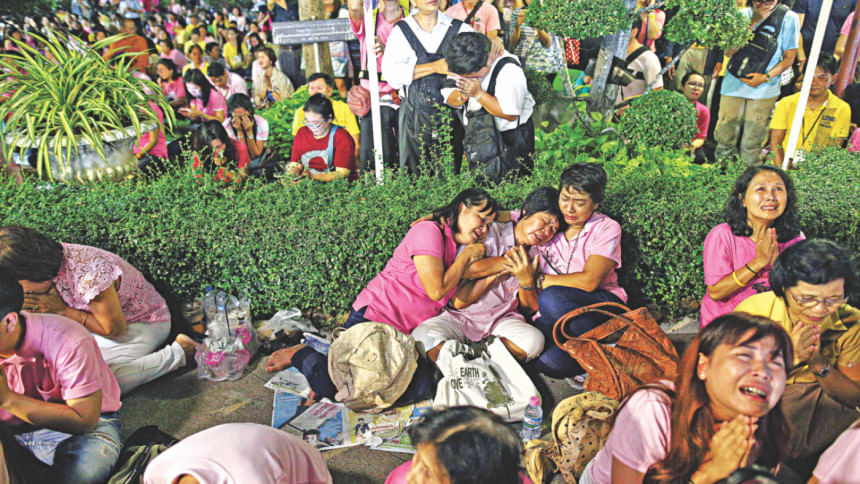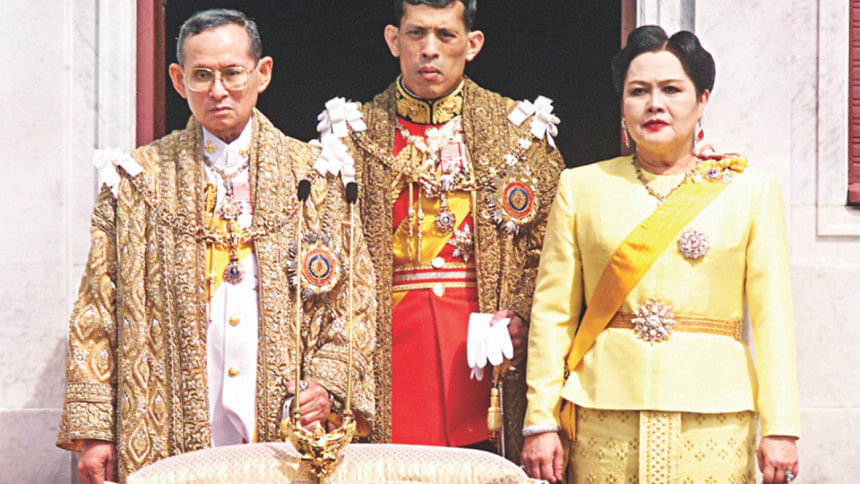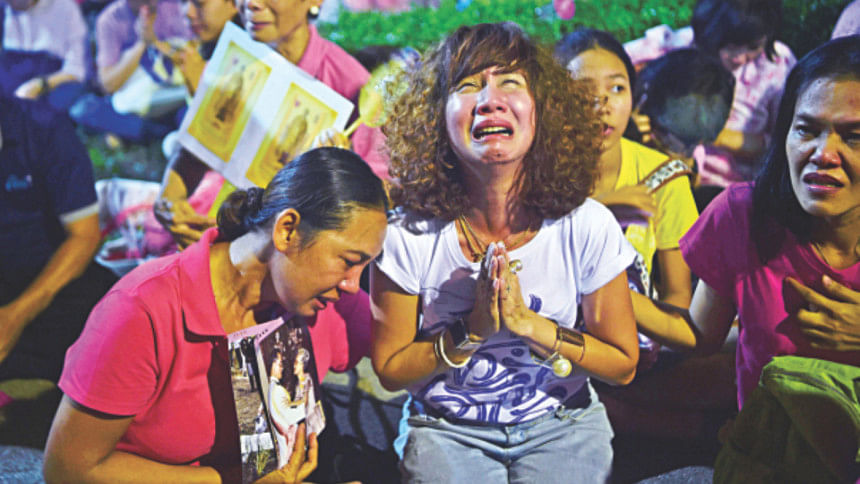Key dates in Thai king's reign

Thailand's King Bhumibol Adulyadej was the world's longest-reigning monarch until his death yesterday at the age of 88. Here are some key dates in a reign that spanned seven decades.
June 9, 1946: Bhumibol assumes the throne aged 18 after his brother is shot dead in mysterious circumstances at the Royal Palace in Bangkok.
May 5, 1950: After finishing his studies in Switzerland, he returns to Thailand for his formal coronation -- a week after marrying his cousin Queen Sirikit. He becomes Rama IX of the Chakri dynasty.
October 1973: Scores are killed when a military dictatorship cracks down on protests. The king makes his first major political intervention, asking the prime minister to leave the country and later appointing a new premier, leading to a brief flowering of democracy.
October 1976: Dozens of students protesting against the return of Thailand's exiled dictator are killed by right-wing militias, police and soldiers in a crackdown. The massacre prompts a coup, which overthrows democracy and returns the military to power. Bhumibol later approves the coup.
May 1992: Hundreds of thousands of pro-democracy protesters fill the streets of Bangkok demanding a return to civilian rule. Dozens are killed during "Black May" after junta leader General Suchinda Kraprayoon assumes the prime minister's post without contesting elections. The king summons the general and pro-democracy leader to the palace and admonishes them in a dramatic televised effort to reconcile the two sides cementing his reputation as a unifying force. The killings stop and Suchinda agrees to resign.
October 11, 1997: The king signs the country's 16th charter into law. Dubbed the "People's Constitution" it is the most progressive of Thailand's charters and a major development for political reform and democracy.
April 2006: After months of protests, Thailand holds inconclusive elections that paralysed the government of Prime Minister Thaksin Shinawatra. Amid the political deadlock, the king chastises the Supreme Court on national television for failing to take action. Within days, the election is invalidated and the process to organise new polls begins.

September 19, 2006: A bloodless coup ousts Thaksin while he is at the UN General Assembly. A few hours after the putsch, General Sonthi Boonyaratglin, who led the takeover, meets the king. The coup sparks years of protests in a country split between Thaksin's supporters -- many of whom are in the rural north and northeast -- and his foes in the powerful Bangkok-based elite in the palace, military and bureaucracy.
August 2009: The king makes a rare speech, broadcast on national television and radio, warning that the country could collapse if its feuding political factions do not unite.
September 2009: The king is admitted to Bangkok's Siriraj Hospital, where he is put on a drip and diagnosed with a lung infection. Thousands visit the hospital to sign a book for well-wishers.
April-May 2010: Bhumibol remains largely silent during a military crackdown on pro-Thaksin "Red Shirt" supporters that leaves more than 90 people dead and hundreds wounded.
December 2013: He urges the nation to work together for "stability" after several days of violent clashes during demonstrations aimed at overthrowing premier Yingluck Shinawatra, Thaksin's sister.
May 22, 2014: Thai army again seizes power.

May 5, 2015: The monarch makes a rare public appearance as he attends 65th anniversary celebrations of his official coronation at a palace in Bangkok.
August 11, 2015: The palace says the king received treatment for water on the brain and a chest infection which he later recovers from.
December 15, 2015: The palace releases video footage of Bhumibol swearing in a group of judges at his hospital, his most recent public appearance.
June 7, 2016: King undergoes heart operation to widen arteries, according to palace.
June 9, 2016: Thailand marks 70th anniversary of the king's ascension to the throne.
September 3, 2016: The palace announces the king has received treatment for a "severe" blood infection.
October 9, 2016: Doctors treating the king say his condition is not stable. Crowds of well-wishers soon gather outside his Bangkok hospital.
October 13, 2016: Palace announces King Bhumibol died at 3:52pm local time.

 For all latest news, follow The Daily Star's Google News channel.
For all latest news, follow The Daily Star's Google News channel. 



Comments